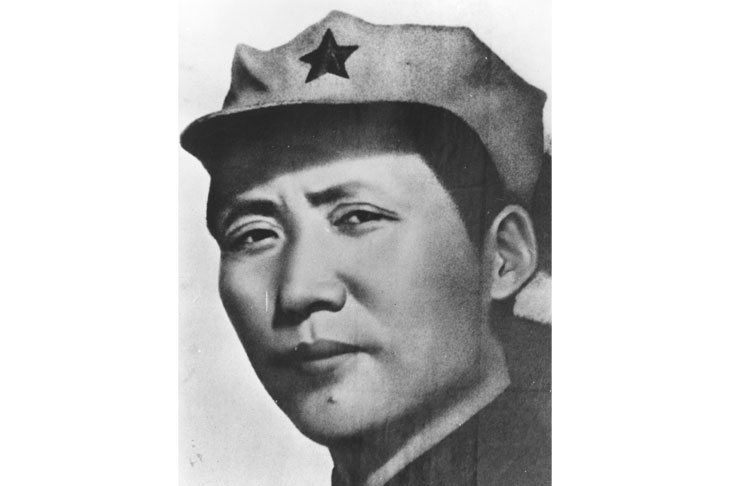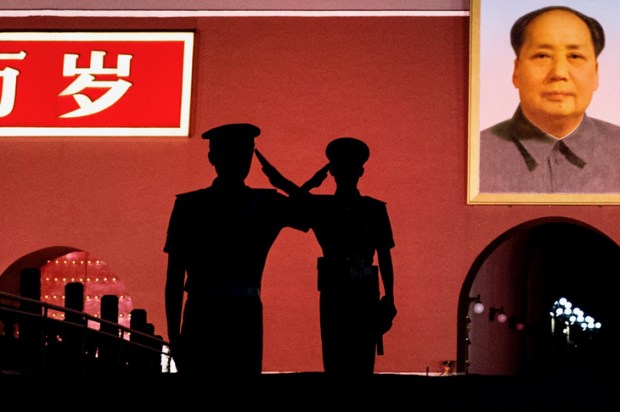China’s ambassador to the United Kingdom, Liu Xaioming, is the consummate diplomat. He epitomises many Chinese representatives abroad – smart, charming and determined. Against intense pressure from Britain’s closest allies, he helped persuade the British government to allow Huawei, believed to be closely connected to Beijing’s state security apparatus, to be used in the country’s super-fast 5G network.
That’s the charm and determination, along with soft-power, large cheque books and shameless industrial espionage, which has enabled Beijing to build extraordinary international influence.
It allowed it to lease Australia’s strategic port of Darwin and to get the Turnbull federal and the Andrews Victorian governments to sign secretive Belt and Road MOUs.
It is why at the United Nations, Chinese officials run four of the UN’s 15 specialised agencies. Washington, which contributes three times more than China and more than 185 member states combined leads just one.
No doubt Western leaders naively believed that commercial bridge-building with rapidly emerging China would lead to prosperity and geopolitical cooperation. They ignored China’s debt trap diplomacy which turned many poorer countries into de facto China-voting colonies. They turned blind eyes to Beijing’s persecution of minorities, its discrimination against women, its lip service to CO2 abatement, its provocative moves in the South China Sea and its wanton trade and intellectual property violations. Even when it came to today’s pandemic, the initial global reaction was to accept the World Health Organisation’s line and praise China for its transparency and prompt action.
However, despite efforts to protect its positive image, Beijing’s reputation has suffered serious damage as more nations come to understand they were duped by a dangerous cover-up.
They now learn that while China was insisting there were no human-to-human infections, travellers were spreading Covid-19 around the world; that allegedly to ‘prevent secondary disasters’, orders were given to destroy research samples; that eight Wuhan doctors were arrested for spreading false rumours and that three journalists who posted videos in the first weeks of the outbreak have not been heard from since. President Xi Jinping’s despatch of censors in early February to ‘strengthen the guidance of public opinions’ was, Beijing says, to avoid panic. But, in the end, as dying patients overwhelmed hospitals and as medical workers begged on social media for protective gear, the epidemic became impossible to hide.
Faced with a damaged reputation at home and abroad and with a friendly World Health Organisation collaborator by its side, Beijing turned the pandemic into a propaganda war. It launched a massive charm offensive offering cash donations, medical professionals and supplies to more than 150 countries and international organisations. To demonstrate its superiority in controlling the spread of infection, it censored the reporting of cases and deaths. Today, China ranks behind Peru with just 83,000 cases and less than 5,000 deaths, not bad for a country with 1.4 billion people. By contrast, the US, with 327 million people and excellent medical facilities has recorded 1.8 million cases and, over 100,000 deaths. Point made.
China rejects Wuhan was the epicentre of the virus. Ambassador Liu maintains China is ‘a victim, not a source of the epidemic’. ‘It was first discovered in Wuhan,’ but the question of where it originated is ‘up for scientists to find,’ he says.
Looking for answers, Prime Minister Scott Morrison led the world in calling for an independent, international investigation into Covid-19’s origins. Beijing reacted angrily with punitive sanctions on Australian beef and barley. With totalitarians, the iron fist is never far away. Undeterred, Australia and a coalition of 116 nations, continue to press for an inquiry, while China rallied support and set the terms. It has now withdrawn opposition.
China’s reaction to Prime Minister Morrison’s initiative suggests a country under intense pressure. Clearly, the spirit of Mao’s Cultural Revolution runs deep in the DNA and is shaping its response. A Chinese state media boss described Australia as the ‘gum stuck to the bottom of China’s shoe’.
The ambassador to Sweden warned of consequences if a Swedish-Chinese publisher was awarded a literature prize, telling Swedish radio, ‘We treat our friends with fine wine, but for our enemies we have shotguns’. Beijing threatened Denmark’s Faroe Islands and France and Germany with serious trade repercussions if Huawei was not given a 5G contract. Its ambassador to Germany mused, ‘Could German cars be deemed unsafe by Chinese authorities?’.
Imagine if Donald Trump spoke this way? But then many Western journalists would rather side with China than the US president. These are the journalists who remain silent when Beijing flagrantly disrespects accepted international codes of behaviour.
But the West is not alone. The Chinese people are also suffering from their government’s lies and deception. Moreover, the coronavirus hit when their over-leveraged economy was already struggling. Authorities had been calling on local governments to ‘go to all lengths to prevent massive job losses this year’. With first-quarter GDP contracting for the first time since 1976 and customers diversifying supply chains, China’s economic recovery will be long and painful. For although Deng Xiaoping’s 1980s reforms brought economic prosperity to the Chinese people, they remained subservient to the imperatives of Communist party survival and, now, Xi Jinping’s cult of personality.
In this dystopian world, Deng Xiaoping’s era of ‘Hide your capacities bide your time’ is over. Wicked foreigners must be blamed for Covid-19. State propaganda exploits ancient prejudices to suppress the truth and deflect domestic anger. With next year’s 20th Party congress approaching, President Xi desperately needs diversions. If necessary, he will use force to fulfil ‘China’s dream’ of uniting Hong Kong and Taiwan with the mainland. Already the world’s preoccupation with the pandemic has allowed him to impose draconian new security laws on Hong Kong while he steps up military provocations against Taiwan.
Like the coronavirus, the Chinese Communist Party dies in sunlight.
Got something to add? Join the discussion and comment below.
Get 10 issues for just $10
Subscribe to The Spectator Australia today for the next 10 magazine issues, plus full online access, for just $10.
You might disagree with half of it, but you’ll enjoy reading all of it. Try your first month for free, then just $2 a week for the remainder of your first year.














Comments
Don't miss out
Join the conversation with other Spectator Australia readers. Subscribe to leave a comment.
SUBSCRIBEAlready a subscriber? Log in